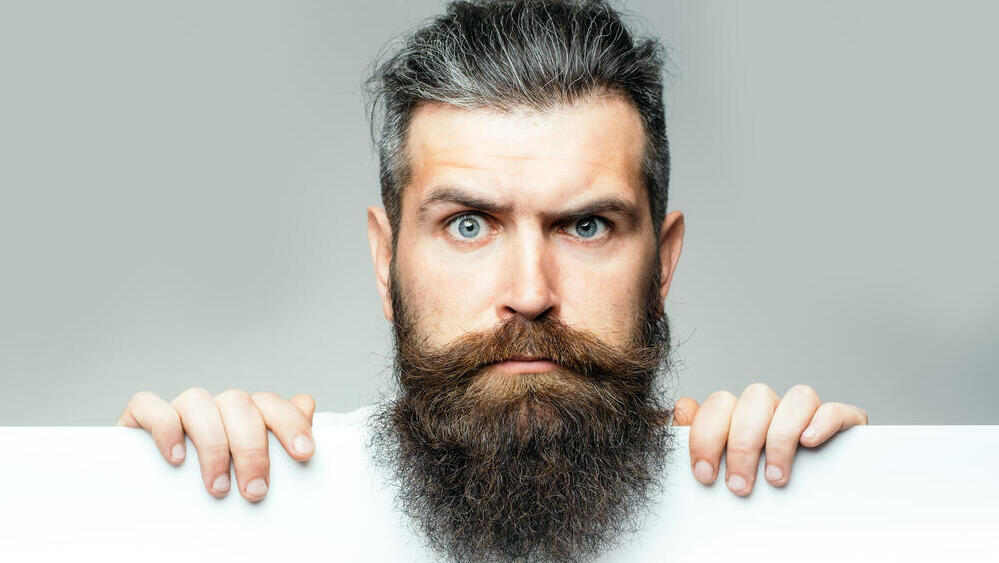Claims that men's beards harbor more bacteria than toilet seats have circulated for years and continue to resurface online. But is there scientific truth to the comparison or is it just a myth?
The idea partly stems from a 1960s experiment in which researchers deliberately sprayed beards with bacteria to test how long the microbes would linger. They found that some bacteria remained even after washing with soap and water. However, more recent studies have cast doubt on the notion that beards are particularly unsanitary.
Several studies focusing on healthcare workers found no significant difference in bacterial load between clean-shaven men and those with facial hair. In fact, some suggested the opposite: shaving can cause micro-abrasions in the skin, making it easier for pathogens to enter the body.
From lab tests to operating rooms
The original 1967 study aimed to test whether men with beards might transmit harmful microorganisms to people around them.
In the experiment, researchers contaminated the beards of test dummies with pathogens, including the Newcastle disease virus and Clostridium botulinum toxin A, then assessed whether these could be transferred by touch or aerosol. They found that even after basic washing, enough microbes remained to potentially infect a vulnerable host.
This early study likely helped shape the perception of beards as "germ magnets." But a 2002 study published in the journal Anaesthesia told a more nuanced story. Researchers observed that bearded healthcare workers released more bacteria downward, even while wearing surgical masks.
The study included three groups: bearded men, clean-shaven men and women. Bearded participants emitted the highest bacterial counts, especially when the mask was disturbed or adjusted. The researchers suggested that while masks do offer protection, bearded individuals working near sterile environments might consider shaving to reduce infection risk.
Dermatologists weigh in
Dr. Efrat Solomon Cohen, a dermatologist and regional medical director with Clalit Health Services, explained that the concern about beards and hygiene is often overstated. “In recent years, beards have become a long-term trend among men and we occasionally get questions like: Is it healthy for the skin? Does it suffocate the skin? Does it cause acne?”
 Dr. Efrat Solomon CohenPhoto: Clalit Health Services
Dr. Efrat Solomon CohenPhoto: Clalit Health ServicesAccording to Dr. Solomon Cohen, facial hair doesn’t inherently cause pimples. Acne is typically the result of clogged hair follicles, oil buildup and dirt. “In fact,” she said, “frequent shaving is more likely to cause irritation, inflammation or breakouts.”
Get the Ynetnews app on your smartphone: Google Play: https://bit.ly/4eJ37pE | Apple App Store: https://bit.ly/3ZL7iNv
One such condition, pseudofolliculitis barbae—an inflammation of hair follicles—is caused not by beards but by shaving.
Hygiene matters
So, are beards dirty?
“It depends on personal hygiene,” said Dr. Solomon Cohen. “If a person washes their beard regularly with soap and keeps the area clean, there’s no reason for bacteria to accumulate in a way that would pose a health risk.”
She noted that leftover food particles and dirt can build up over time in unwashed beards. “If someone neglects hygiene, that buildup can lead to bacterial growth and skin irritation.”
As for using grooming products, Dr. Solomon Cohen advises moderation: “Overuse of drying products or harsh soaps can irritate the skin and cause flaking. You need balance—once a day as part of your face-washing routine is enough.”
A common question among bearded individuals is whether facial hair provides sun protection. “Beard hair does offer partial shading from UV rays,” Solomon Cohen explained, “but it’s not full protection. Sunlight can still penetrate, especially through thin or patchy beards.” She recommended applying sunscreen to the beard area, rubbing it in between hairs to ensure coverage.
And what about that infamous comparison to toilets?
“In public restrooms, you often find more bacteria than in private homes,” said Dr. Solomon Cohen. “But does casual contact with those bacteria pose a real clinical risk? It’s hard to say.”
Most people, she noted, shower at least once a day and use some form of soap, which is more than enough to wash off everyday dirt and germs. “There’s no need to go overboard with hygiene,” she said.





